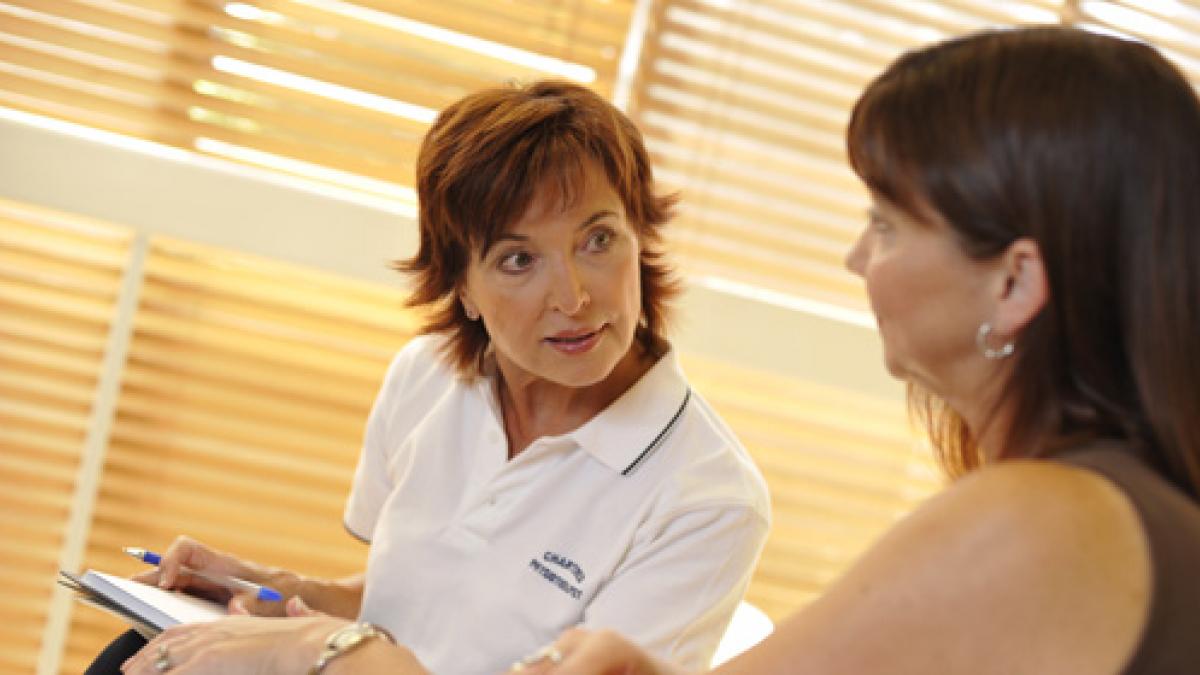Almost four in 10 women who experience urinary incontinence after childbirth are self-conscious about discussing the problem with a healthcare professional, research by the National Childbirth Trust shows.

It also reveals that a third of those who develop urinary incontinence after childbirth are embarrassed to discuss it with their partner, and almost half are uncomfortable talking about it with friends.
The consequences of not seeking help can be devastating. It can leave women feeling lonely and isolated, affect relationships and careers and prevent them exercising or having sex.
Katie Mann, a clinical specialist physio who runs pelvic floor clinics for women and men in Lancashire, said the findings were no surprise.
‘But I think that questionnaires such as this help to raise the profile very positively,’ she said.
Fortunately, most cases of urinary incontinence can be treated without drugs or surgery through exercises that improve the strength of pelvic floor muscles.
‘For physiotherapists, having the knowledge that we can do something to help sufferers gives them the confidence to talk to us,’ said Ms Mann, who is vice-chair of the CSP’s pelvic, obstetric and gynaecological (POGP) network.
The National Childbirth Trust surveyed online 1,515 UK adults aged over 18 with a child aged less than two in June 2016.
For physios, information about treatments for urinary incontinence after childbirth, courses and patient booklets are available on the POGP website. The site also includes information about the POGP network
Find Out More
Number of subscribers: 0



































